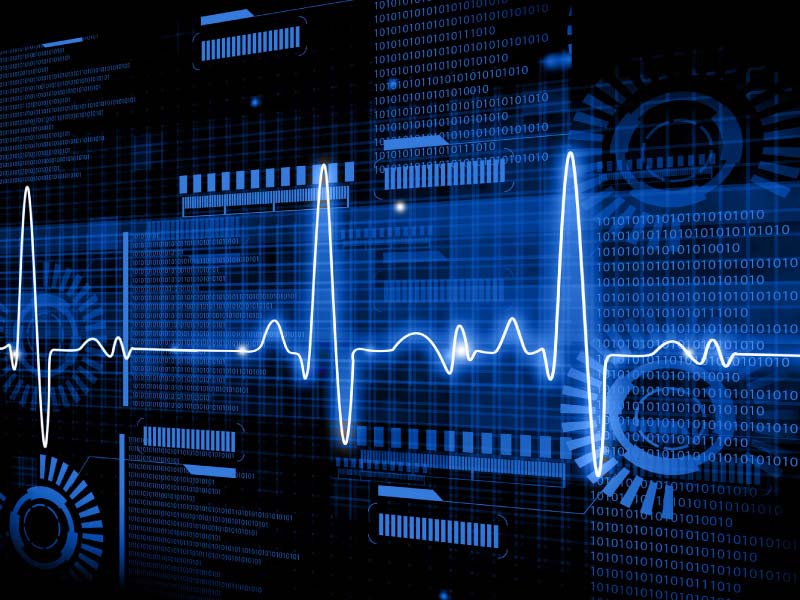AI model could use heart rhythm data to detect premature aging and cognitive decline
By American Heart Association News

Electrocardiogram tests – which measure the heart's electrical activity – could someday be paired with an artificial intelligence model to detect premature aging and cognitive decline, new research suggests.
The study found people with accelerated ECG age had lower cognitive test scores than those experiencing normal aging. Preliminary findings will be presented Wednesday at the American Stroke Association's International Stroke Conference in Los Angeles. The findings are considered preliminary until full results are published in a peer-reviewed journal.
"Unlike chronological age, which is based on years lived, ECG age reflects the functional status of the heart and potentially the entire organism at the tissue level, providing insights into aging and health status," lead study author Bernard Ofosuhene said in a news release. He is a clinical research coordinator in the department of medicine at the UMass Chan Medical School in Worcester, Massachusetts.
Every time the heart beats, it emits an electrical impulse, or wave. An ECG, also known as an EKG, translates these impulses into wavy lines on paper, allowing doctors to spot heart problems. For this study, researchers designed an AI model to predict a person's biological age using their ECG data. Biological age reflects how a person's cells and tissues may be deteriorating.
Prior studies have shown that ECG age can help predict heart disease and death. But little was known about its relationship to cognitive impairment. The researchers note that since ECGs are widely used in heart and stroke diagnoses, the new tool could help flag people at risk for cognitive impairment.
In the study, researchers analyzed data from 63,800 participants in the UK Biobank, an ongoing investigation of more than 500,000 volunteers in the United Kingdom. Participants were ages 40 to 69 when they enrolled between 2006 and 2010. They had ECGs performed and took a battery of cognitive tests during visits between August 2023 and July 2024. The AI model was then applied to determine their ECG age.
According to the AI model, 15,563 participants were found to be experiencing normal aging, 24,671 were experiencing accelerated aging and 23,566 were experiencing decelerated aging. Compared to the normal aging group, the accelerated group showed a significant decline in cognitive performance, whereas those whose ECGs suggested they were aging slower performed better on the tests.
Based on ECG age, those found younger than their chronological age group outperformed their peers on six out of eight cognitive tests, while those with an older ECG age fared worse on six tests.
"There is a lot of ECG data available for stroke treatment, and I encourage health care professionals to use this data to look for signs of cognitive decline," Ofosuhene said. "Doing so may help with early diagnosis and timely intervention."
Future studies would investigate whether gender can affect the link between ECG age and cognitive performance, he said. Additionally, because most UK Biobank participants are of white European ancestry, Ofosuhene said his team would like to determine if their findings can be replicated in more diverse populations.
The study adds to a growing body of research that recognizes "the strong connection between heart and brain health," Dr. Fernando D. Testai said in the news release. Testai, a professor of neurology and rehabilitation at the University of Illinois College of Medicine in Chicago, led the writing committee for a 2024 American Heart Association scientific statement on the link between common cardiovascular diseases and cognitive impairment.
Testai, who was not involved in the study, said that using ECG data to assess cognitive ability may seem like "a futuristic idea," but validating the study could have several important outcomes. The ECG data collected in a doctor's office or remotely with wearables, for example, could help assess cognition at home or in rural areas lacking neuropsychiatric specialists, he said. Using the data and AI also might be quicker and more objective than traditional assessments.
"However, one important question remains," Testai said. "Can ECG data predict future cognitive decline? Answering this could lead to valuable treatments."





